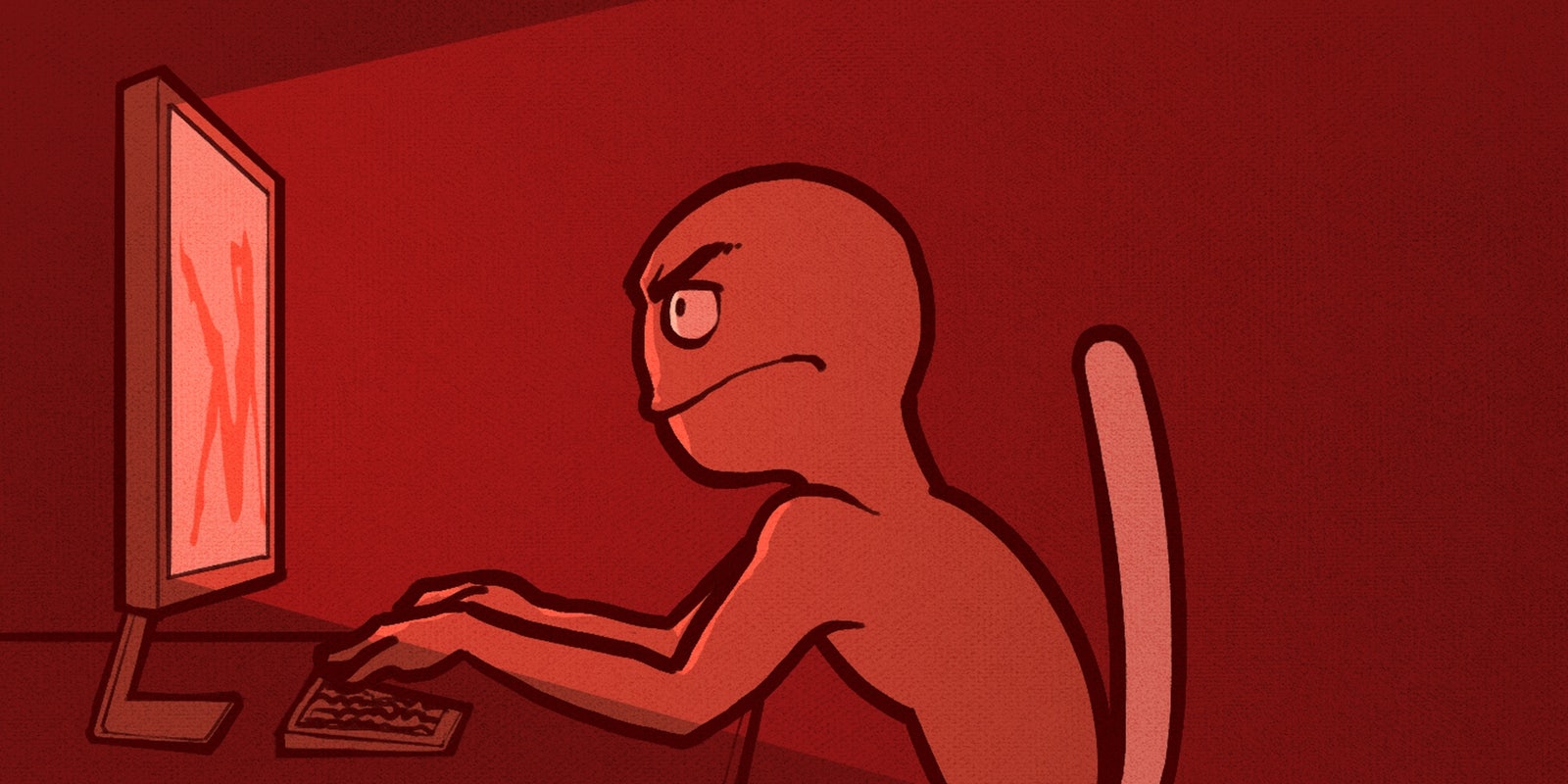Everyone on Twitter has been trolled at one point or another. And sometimes, we do the trolling ourselves. But what happens when a simple disagreement among followers escalates into a months-long tweetstorm?
According to a Friday court ruling in Ontario, Canada, a Twitter fight is just that. It’s not harassment, and it doesn’t break any rules—even if there’s a few obscenities and false accusations tossed around.
In an 80-page ruling, Judge Brent Knazan dismissed criminal harassment charges filed against Gregory Elliott by two prominent Toronto feminists, Stephanie Guthrie and Heather Reilly.
In 2012, according to the ruling, Guthrie and Elliott met to discuss his working on some graphic designs for one of her activist projects. They had a friendly relationship at first that later soured over the course of a series of tweets about Gamergate—specifically, about an online game that allowed players to punch feminist gaming critic Anita Sarkeesian in the face. Guthrie used Twitter to “call out” the game’s designer, Bendilin Spurr, and encouraged her followers to go after him. Elliott disapproved of the tactic, calling her Twitter war “revenge” and suggesting that it was an act of “hate.”
From then on, Elliott and Guthrie were essentially Twitter enemies. Later, Guthrie turned her focus to him—digging through his timeline to find alleged evidence that he sexually harassed women online. According to the ruling, that included allegations that he hit on a 13-year-old (the court discovered those to be false).
As the Twitter battle escalated, Elliott’s tweets to Guthrie and her followers became angrier and Guthrie said she began to feel harassed and threatened, and eventually blocked Elliott.
As the court found on Friday, not only were both parties actively engaging in the fight, but Elliott never actually made any direct threats. Besides, wrote Judge Knazan, interacting with people on Twitter is akin to conversing in a public park. If you go to the park, you should expect to find some people there.
On this evidentiary record, asking a person to stop reading one’s feed from a freely chosen open account is not reasonable. Nor is it reasonable to ask someone to stop alluding to one’s tweets. To subscribe to Twitter and keep your account open is to waive your right to privacy in your tweets. Arranging a meeting or social event using tweets other than direct messages is like inviting strangers into your home or onto your phone line while you talk to your friends. Blocking only goes so far, as long as you choose to remain open.
The court’s ruling provides extensive evidence of the tweets exchanged by Elliott, Guthrie, and Reilly. Reading through them is as exhausting as following any Twitter fight, but the TL;DR is essentially a group of people saying, “Quit following me, don’t read my tweets,” and then other people responding, “I’m not following you, don’t tweet back at me.” And then some people complaining about trolls, while other people complain that Twitter is a public place and they can troll all they damn please. The case is basically one long example of civilization at its worst.
https://twitter.com/greg_a_elliott/status/270843337186111488
While Elliott’s Twitter account is still active, and used to frequently speak out about the case, Guthrie’s tweets are now protected.
H/T CBC | Illustration by Max Fleishman


